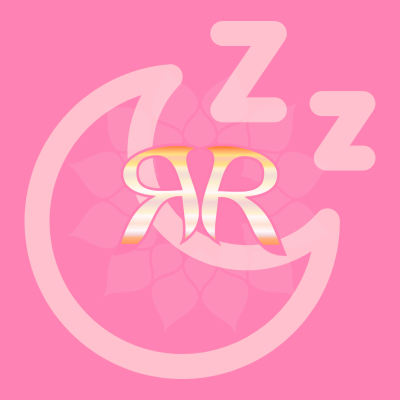
TLDR: Creativity is amusement for the mind. The mind is a playful thing and it needs to be entertained. If we don’t give it something fun to do, it will go out and seek it. Harness your mental energy for 2026, exert self-discipline and start creating!
Table of Contents
Creativity is Expression
creativity | ˌkriːeɪˈtɪvɪti |
noun [mass noun]
the use of imagination or original ideas to create something; inventiveness: firms are keen to encourage creativity.
Get out of your own way and have fun
The most important thing about manifesting your imagination is getting out of your own way. Yes, I said it. We are our own worst roadblocks, many a time. (aside: for people from marginalised backgrounds and community, there are other, often bigger, roadblocks).
I think that we often edit ourselves to the point of censorship. Creativity is about refining, but not about throwing things away.
It is immature to think that *any* and *all* creative output is valid (it’s not). But it’s haughty to think that only *the best* creative output is worthy of being seen. Many, many successful creatives have said it: building up a body of work is about finishing projects, sharing them, then moving on to the next one.
And all successful creatives agree – when you get into that flow state, it’s fun. Look for the joy, follow it, focus on it, and you will find your path.
My creativity rules
Creativity is about experimentation, discovery, and having fun! Modern life says that everything has to be a side-hustle and monetised. Not true! The most important thing is having fun, enjoying the ride, and making the most of the time you’re here on Earth.
- Do whatever you’re naturally good at. Ignore anyone who tells you to focus on what you need to work hardest at. That is soooo school marm. Do what comes naturally and stay focused.
- Start with simple tools so you don’t stress about having spent a lot of money on gear. if you can make something cool with used/low-grade materials, then just imagine what you will do when you decide to invest a little more, once you’re gathered the courage and conviction to do so! Stretch your materials to their limit and stay focused.
- Break it into small chunks. You may feel too tired to work on your art, but you don’t have to doom scroll. Specifically search for tutorials about your chosen craft. Stay on topic! You may be a polyvalent artist – not everything fits into every moment. Just stay focused!
- Journal. Even if you don’t manage to make something every day, journaling is a trusted way to keep your thoughts and emotions organised and help you to stay focused.
- Did I mention to stay focused?
12 steps to creativity
If you want to read more, here is my other blog about the 12 steps to creativity.
The Mind
The mind is a hard thing to know, harder still to control. I often quip to my clients that the reason that meditation, religion, dogma, and philosophy exist is precisely because the mind is, and always has been, very hard to master.
A problem-solving tool

The mind is a problem solving tool. Everything man-made object we see around us began as a thought. We feel cold, so we make clothing. We feel hunger so we cook, harnessing fire and using utensils. We need shelter, so we invent housing, we need continuity so we invent writing…
The problem is: if there are no problems to solve, the mind will invent them. This is the root of many destructive behaviours. The mind resists stillness. It darts around seeking stimuli and entertainment.
Modern life emboldens the meandering mind. Our attention is currency. The socials make money from our time and attention. To focus the mind on something – anything! – else is a profound act of rebellion.
The subversion of the quiet mind
A quiet mind is subversive in our modern society. Modern people are not citizens; we are consumers. The quiet mind of a citizen is unmoved by transient desires and trends. It is, therefore, a woeful or, at best, recalcitrant, consumer. Desire is a powerful force for change, but its force depends on where it comes from. A quiet mind can entertain desire, but gives priority to desires that arise from within, not those that are awakened from without.
A quiet mind transmutes desire from something that can be implanted from outside and cultivated the kind of desire that is arises from within.
This is the creative spark: desire looks inwards for its fuel, not outwards. Outside stimuli inform the creative process, but they are not the source of it.
Mindset coaching
If any of this resonates, you may wish to work with me by booking a mindset coaching session. In case you’re not sure, I also offer a free ten-minute call which you can book at a time convenient to you. Scroll down to “coaching” and click the Creativity Coaching Call to view scheduling options.
Amusement
Amusement takes many forms. I use the word amusement in the sense of distraction, a kind of challenging mental activity (in the sense ‘musing, diversion of the attention’) Unlike playing video games, talking bollocks at an after party, or roaming around shopping malls (online or physical), using one’s precious time to make something, as humble as it may be, is both amusing and time well spent.
Let’s not confuse being creative with having fun. There are many aspects of artistic endeavour that are, frankly, frustrating. It is easy enough to have an idea. It is sometimes insurmountably more difficult to realise that idea. The hard part is learning the craft in order to be able to translate what it in your head with what you are able to output.
Most artistry requires countless hours of learning and practice to get anywhere close to being an adept. To become a master requires years of dedication, and repeated failures. yep, I said it. You will absolutely suck at whatever you choose to do for ages. And you will fail. A number of times.
I believe that when we are aligned with the Universe and coherent with ourselves, recognition will come. Until we are in alignment and in coherence, we are not ready for recognition. And so, we are given the assignment: work in anonymity until you are ready to hold the success.
Creatively successful, or not?
Both success and lack of success threaten the artist.
Being successful in the creative sphere often means moving in a parallel world to everyone else. A world which often threatens to destroy the artist. A successful artist exists in a space in which fame, drugs, extensive travel, acolytes, yes-men, and the anxiety to always exceed than your last work are constant threats to one’s mental, physical, and spiritual health.
An unsuccessful artist moves in a world in which you question yourself, people around you question the energy that you dedicate to your art, you don’t have time, space, money, or connections to do your best work, and, if you’re a woman, you may face systemic discrimination based on your gender.
A mediocre artist
A mediocre artist is neither successful nor unsuccessful in the eyes of the world. But, I think that a mediocre artist should always consider themselves successful in their own eyes!
Discipline
As it is said in the wonderful Autobiography in Five Short Chapters, we tend to repeat behaviours ad nauseum, until we decide to change them.
The most important factor is cultivating our gifts is discipline. I will die on this hill: discipline the deepest form of self-love. Most of us raised in the hierarchical, patriarchal society assume that discipline is some external masculine voice telling us what to do.
The externalisation of discipline is so dangerous because it places us in peril of losing our centre. Self-discipline comes from our centre. The centring mantra must be “I do this because it is in my best interest and I love myself enough to listen to my inner voice and intuition.”
Remember this: amateurs practice and professionals train.
Discipline + Fun
Discipline feels less like discipline when you enjoy what you’re doing. Find the way to make your creating fun, but resist with all your might only doing the fun bits.
I am currently in Year 4 of solfège and it’s hard. I am not great at it. I can feel myself advancing, but I find it hard to pronounce the notes. We are wokring in Spanish, of course, and here we use Do-Re-Mi and not C-D-E. And, in Spanish, the “r” on the “Re” is rolled. And i, after twenty years here, still struggle to roll my “r” with the tip of my tongue. But do I desist? Hell no! I keep going precisely because I am bad at it. Once it gets easy, I will push higher, and further. Why? Because I love making music and want to excel, even if I am mediocre.
Summing Up
If you take anything away from my post, I hope that it’s this: Keep focused. Keep going. It is worth it!



